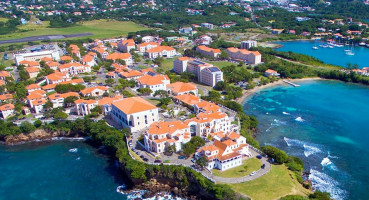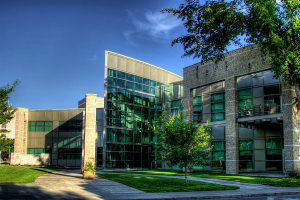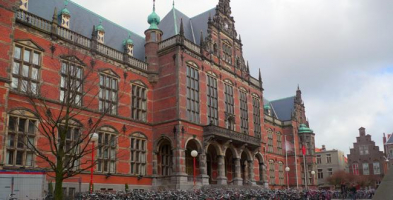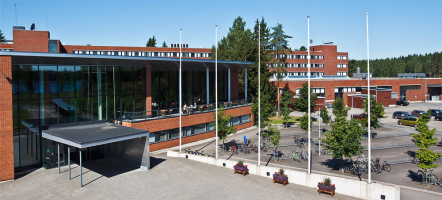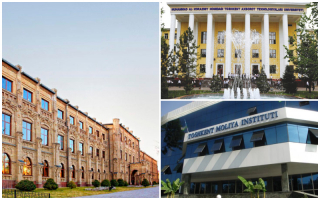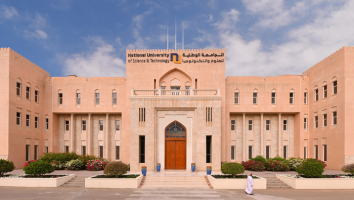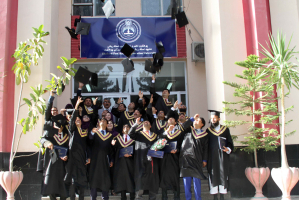Top 10 Best Universities in Germany
If you want to study in Germany, you should know that the country is home to 46 of the 1029 universities listed in the recently released QS World University ... read more...Rankings®. This year, 12 German universities are among the top 200 in the globe. Continue reading to explore the best universities in Germany.
-
Ludwig Maximilian University of Munich (LMU) is widely regarded as one of Europe's top academic and research institutes. LMU has drawn inspired researchers and brilliant students from all over the world since its inception in 1472, maintaining the University at the crossroads of ideas that challenge and transform our complex world.
LMU has a 500-year history as one of Europe's major research universities. Its excellence in teaching and research extends from the humanities and cultural studies to law, economics, and social sciences, as well as medicine and natural sciences. A rigorous interdisciplinary approach generates vital innovation for our global future.LMU is home to students from all over Germany and around the world. They benefit from the University's very broad range of study options as well as its strong emphasis on research. They stress the connections between research and course material at all stages of academic training. Their students see their education as a stepping stone to a successful career, not least because Munich is one of Germany's leading technological and media centers.
When you come to LMU, you are joining a community of people who are passionate about making the most of their abilities, curiosity, and opportunities.All members of the LMU Munich community, from notable research award winners to undergraduate students, are active in developing new knowledge for the benefit of society as a whole. The University is particularly well-known for its exceptional circumstances for innovative basic research, both within specific disciplines and through inter-and transdisciplinary collaborations spanning multiple realms of knowledge.
MORE INFORMATION:
World rank: 44
Location: München, Germany
Website: https://www.lmu.de/en/index.html
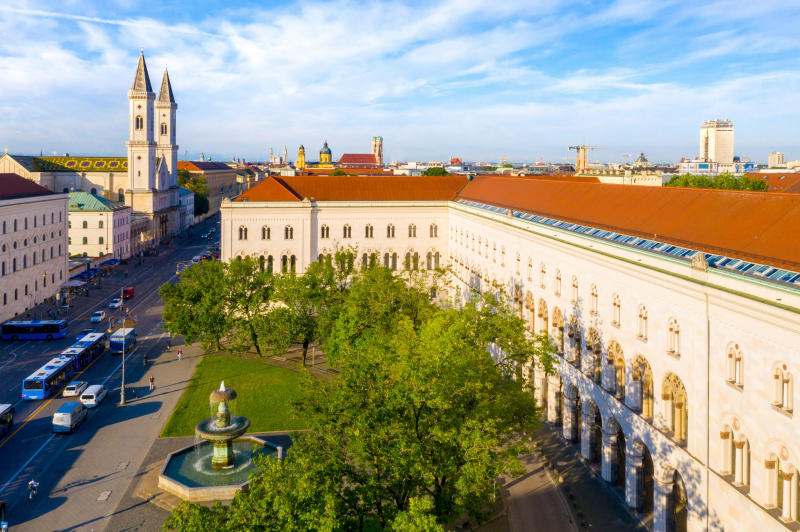
Ludwig Maximilian University of Munich (photo: https://leverageedu.com/) 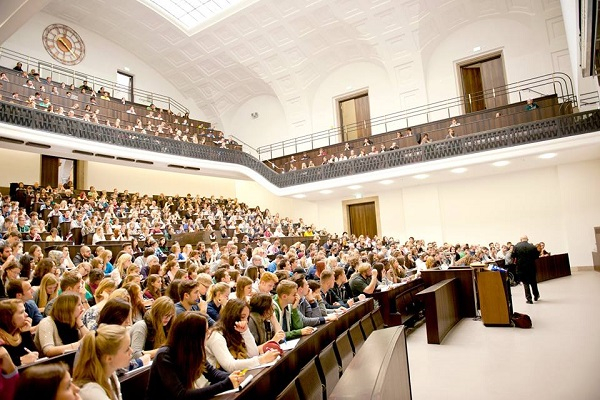
Ludwig Maximilian University of Munich (photo: https://studyabroad.shiksha.com/) -
The Free University of Berlin was created in 1948, during the instability of postwar Germany, when students at the previous Universität Unter den Linden, then located in the city's Soviet district, faced persecution for their political views. The Free University was founded with foreign backing, allowing scholars to pursue their teaching and studying without political intervention.
Several student protests and demonstrations took place at the institution in the 1960s. The reunification of Germany in 1990 brought about changes in university administration, as well as a renewed emphasis on research. It is now one of just eleven 'German Universities of Excellence.'The Free University of Berlin, located in the beautiful suburb of Dahlem in southwest Berlin, has over 32,000 students and offers over 150 degree programs. It includes 17 joint research centers, a staff of about 5,000 academics, and relationships with institutions all over the world. It also has seven foreign liaison offices in Beijing, Brussels, Cairo, Moscow, New Delhi, New York, and Sao Paulo.
The university also has five Nobel Prize winners on its faculty, as well as 17 Leibniz Prize winners. With women holding 30% of professorships, the university is likewise in the forefront of gender representation in German higher education institutions.The Free University of Berlin has hosted many notable personalities throughout the years, including President John F. Kennedy, who picked it as the site for his 'Ich bin ein Berliner' speech in 1963.
MORE INFORMATION:
World rank: 55
Location: Berlin, Germany
Website: https://www.fu-berlin.de/en/index.html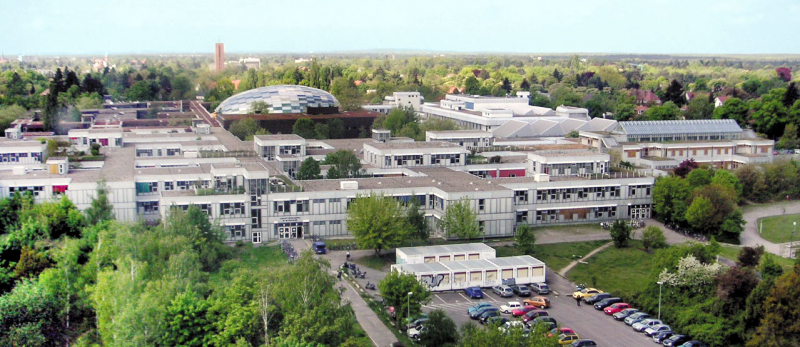
Free University of Berlin (photo: https://theculturetrip.com/) 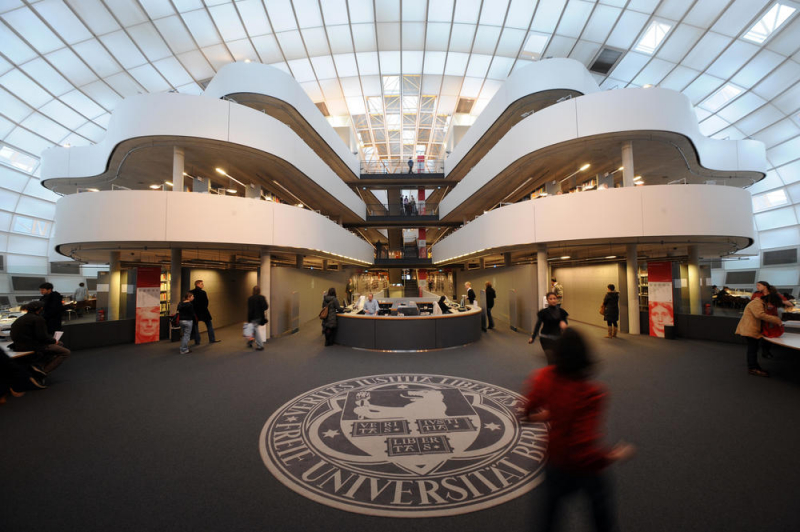
Free University of Berlin (photo: https://www.wiwiss.fu-berlin.de/) -
The Humboldt University of Berlin, founded in 1810, is one of the most prestigious universities not only in Germany but also in Europe. It has an international reputation in the arts and humanities.
Originally known as the University of Berlin, it was granted its current name in 1949 and is named after both its founder, Wilhelm von Humboldt, and his brother, the renowned naturalist, and alumni of the institution, Alexander von Humboldt.
HU Berlin is regarded as one of Europe's forerunners in higher education. Wilhelm von Humboldt is credited for inventing a university model that emphasized a stronger interaction between research and teaching – a model that is still used in higher education institutions around the world today.The institution's intellectual prominence is demonstrated by the fact that it has trained 29 Nobel laureates, including Max Born, who won the award for physics in 1954; Theodor Mommsen, who won the prize for literature in 1902; and Wassily Leontief, who received the prize for economics in 1973.
The German Universities Excellence Initiative, launched by the federal government in 2006, began awarding additional cash to institutions that demonstrated they were leaders in science and research. In 2012, HU Berlin was one of 11 institutions to win this funding, further solidifying its position as one of the country's top universities.Marxism's founders, Karl Marx and Friedrich Engels, as well as author Alfred Döblin and theologian Friedrich Schleiermacher, were all graduates of HU Berlin. Composer Felix Mendelssohn was also a student there, and Albert Einstein taught there for a while.
MORE INFORMATION:
World rank: 60
Location: Berlin, Germany
Website: https://www.hu-berlin.de/en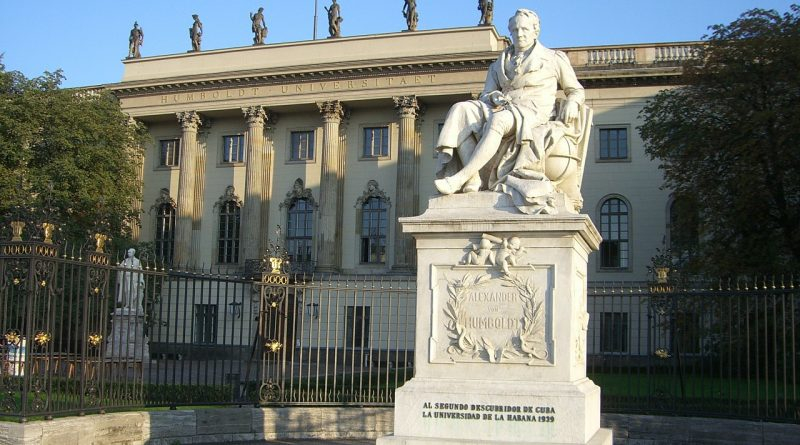
Humboldt University of Berlin (photo: https://www.das-akademie.de/) 
Humboldt University of Berlin (photo: Maria_Globetrotter) -
Heidelberg University was established in 1386 and is Germany's oldest university. The research institution is a public university in Baden-Württemberg that covers a wide range of subjects from the humanities to medicine. The university's slogan is "Semper apertus" – "always open," and the institution strives to work in an open-minded and accepting environment toward persons and ideas.
The Pope granted Ruprecht I, Elector of the Palatinate, permission to build the university in his home city of Heidelberg in 1386. It was known in the 16th century as a Calvinist stronghold, and in the 19th century for its adherence to liberal and democratic values.
Heidelberg University received institutional financing from Germany's Excellence Initiative and the Excellence Strategy in both 2006 and 2012, intending to promote world-class research. Since the award's inception in 1901, eleven Heidelberg professors have received the Nobel Prize.
Heidelberg University prioritizes the development of new types of interdisciplinary collaboration that transcend traditional subject boundaries. The institute is also proud of its relationships with non-university research institutions and businesses in the Rhine-Neckar and Heidelberg regions.
Heidelberg boasts a cosmopolitan and student-friendly environment. Both the city and the university provide a comprehensive range of sports and leisure activities, as well as film and music festivals and a significant number of museums, allowing students and faculty to relax in a diversified cultural atmosphere.
MORE INFORMATION:
World rank: 70
Location: Heidelberg, Germany
Website: http://uni-heidelberg.de/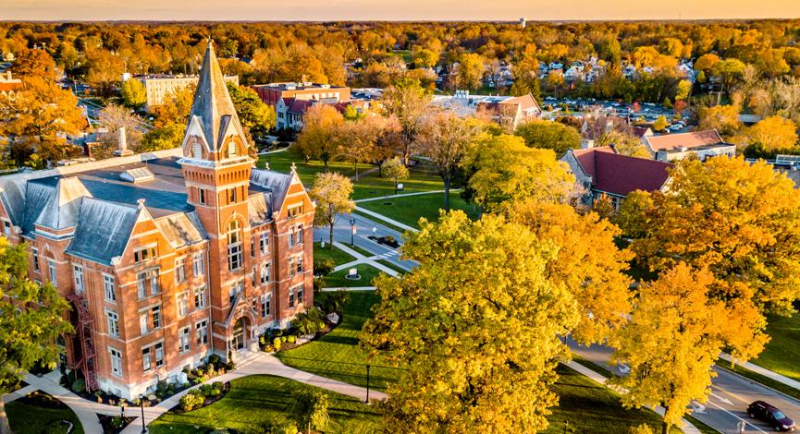
Heidelberg University (photo: https://www.heidelberg.edu/) 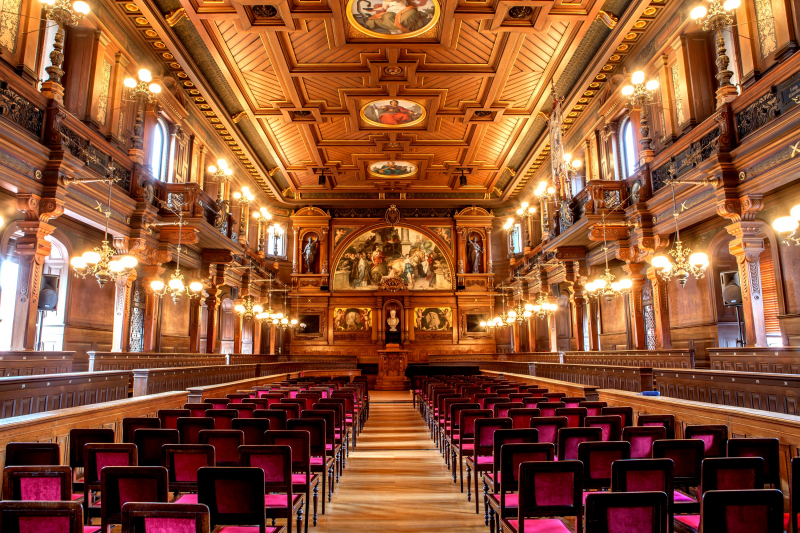
Heidelberg University (photo: https://www.spotahome.com/) -
When it was founded in 1868, the Technical University of Munich was known as the Royal Bavarian Polytechnic of Munich. Several inventors have studied at the university, including Carl von Linde, who invented the refrigerator, and Rudolf Diesel, who invented the diesel engine. The university ranks fifth on the list of best universities in Germany.
Furthermore, since 1927, 13 of the university's teachers or alumni have been named Nobel laureates. Gerhard Ertl, a former instructor at the university who earned the Nobel Prize in Chemistry in 2007, and alumni Wolfgang Ketterle, who won the Nobel Prize in Physics in 2001, are among the most recent awardees. In 2014, 165 inventions were developed by university scientists, while 69 patents were submitted in 2015.
The Technical University of Munich also has five Humboldt professors — academics who are internationally recognized in their discipline – and has had 18 Leibniz prizes given to its scientists since 1987.The university has around 400 buildings spread across three campuses in Bavaria: Munich, Garching, and Weihenstephan. The university is divided into 13 departments and includes an Olympic park and university hospitals. It established the German Institute of Science and Technology – TUM Asia in Singapore in 2002. It covers master's degrees as well as professional training programs.
The Technical University of Munich adopted a new institutional strategy in 2006, branding itself as "The Entrepreneurial University." Students and faculty at the college have created over 800 start-ups.
MORE INFORMATION:
World rank: 80
Location: München, Germany
Website: https://www.tum.de/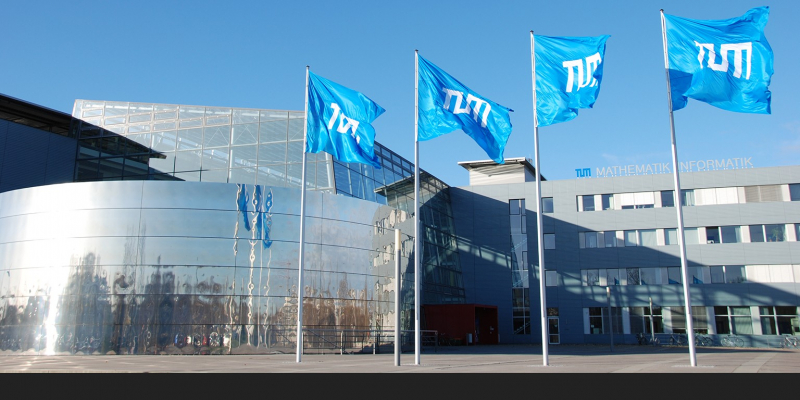
Technical University of Munich (photo: Technische Universität München) 
Technical University of Munich (photo: Muhammad Lila) -
The University of Göttingen, one of Germany's most famous universities, is located in the old Saxon town of the same name in central Germany. The institution, known colloquially as Georgia Augusta, was founded in 1737 and presently has over 26,000 students, 11 percent of whom are abroad.
Göttingen, a research-oriented institution, has ties to nearly 40 Nobel laureates, including physicists Max Born, Werner Heisenberg, Max Planck, and Otto Stern. Both the Brothers Grimm taught at Göttingen, and among its graduates are statesman Otto von Bismarck, philosopher Arthur Schopenhauer, poet Heinrich Heine, and sociologist Max Weber.Napoleon allegedly declared of Göttingen, "It belongs to all of Europe." It was created in 1734 by England's King George II as Elector of Hanover, and the university's library was the first complete academic library of European standing. In the early twentieth century, Göttingen was considered the center of the mathematical world, a status it lost in 1933 when more than 50 of its teachers were forced to leave the University under Nazi administration.
After WWII, Göttingen was the first university in Germany to start teaching, and it grew to become one of the country's largest higher education institutions.
The modern Göttingen offers a diverse range of degree programs, particularly in the humanities, with nearly all academic fields represented across its 13 faculties. It emphasizes creativity in particular, with students and instructors encouraged to engage in creative thinking as well as acquire methodological expertise.
The university's profile is further enhanced by collaborations with several local research partners, including the Göttingen Academy of Sciences, the German Aerospace Centre, and five Max Planck Institutes, which work with the university to provide an alliance of collaboration in research and teaching.MORE INFORMATION:
World rank: 92
Location: Göttingen, Germany
Website: https://www.uni-goettingen.de/en/1.html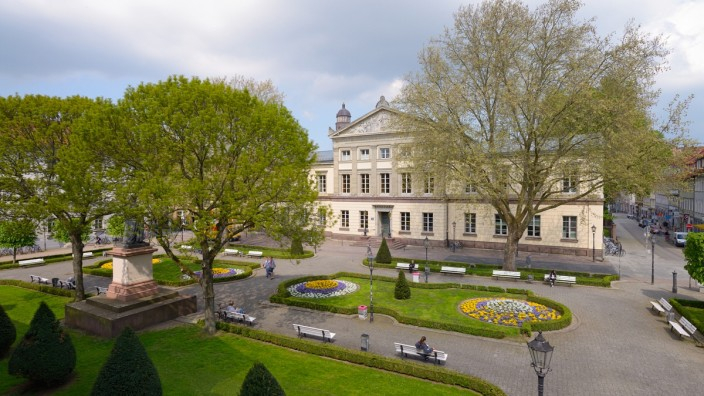
University of Göttingen (photo: https://indiaeducationdiary.in/) 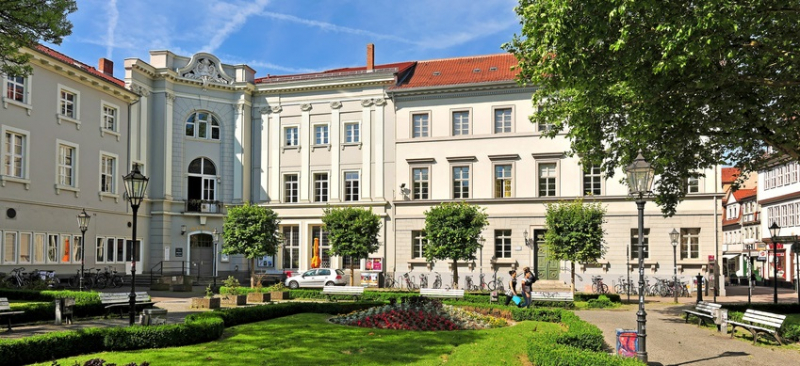
University of Göttingen (photo: https://www.sys-med.de/) -
University of Tübingen Eberhard Karls is a well-known academic in the humanities, natural sciences, and theology. The institute is located in Tübingen, Baden-Württemberg, one of the typical German university cities known for its boat tours and the magnificent architecture of its old town Hölderlin.
In 1477, the first Count Eberhard of Württemberg funded the establishment of the university. A century later, the protestant theology department played an important role in the formation of the astrologer Johannes Kepler. The university grew rapidly after that, with the construction of the first Natural Sciences department and the first university hospital in a German higher education institution.Today, the University of Tübingen includes 14 schools and offers 280 courses at all levels, including Bachelor's, Master's, and Doctorate degrees. The university stays at the forefront of worldwide academic institutions as an integral member of the German excellence drive. Every year, the German Research Foundation funds university-based research in neurology, elementary particle physics, and nanotechnology.
The University of Tübingen maintains close ties with around 150 foreign universities in 62 countries throughout the world. The University of Michigan, the University of North Carolina at Chapel Hill, and the University of St. Andrews are among them. This offers students a once-in-a-lifetime opportunity to study abroad for a year, or for foreign students to come to Tubingen and actively participate in scientific research.Although the University of Tübingen cannot provide a true campus life experience, the small city of Tubingen boasts a calendar full of events such as concerts featuring notable singers and orchestras. The college also offers photography, journalism, and creative writing classes, allowing students to hone their skills and widen their artistic horizons.
MORE INFORMATION:
World rank: 108
Location: Tübingen, Germany
Website: https://uni-tuebingen.de/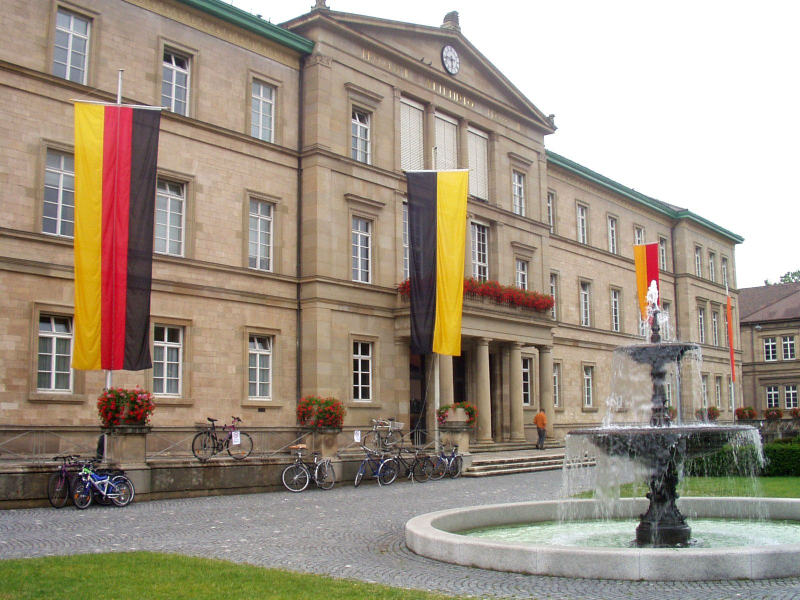
University of Tübingen (photo: https://leverageedu.com/) 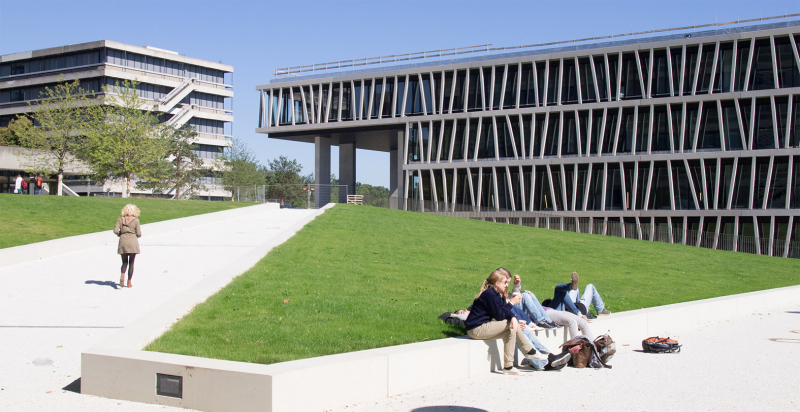
University of Tübingen (photo: https://civis.eu/) -
Despite its more than 550-year history, the University of Freiburg is just Germany's fifth-oldest university. Nonetheless, its long tradition of teaching in the sciences and humanities has won it a global reputation as one of Germany's elite universities. The student body is made up of 120 different nationalities, with international students accounting for approximately 16% of the overall number of students.
Many prominent intellectuals, scientists, and cultural personalities, including physicist Martin Heidegger, philosophers Hannah Arendt and Rudolf Carnap, and biologist Paul Uhlenhurth, attended or taught at the university. The University of Freiburg is affiliated with nineteen Nobel Prize winners, and many of the university's academics have received the top German scientific prize for work done while at the university.
Across 11 faculties, the University of Freiburg offers 180 undergraduate, graduate, and professional degree programs. With the option of adding an interdisciplinary year to a bachelor's degree, there is a heavy emphasis on multidisciplinary and innovative studies.
On three huge campuses near the historical city center, university buildings are integrated into the city of Freiburg. Some university buildings, such as the old university library, have historic architecture. In the 1970s, a new university library was built, which is now one of the largest in the country.
In 2010, approximately 15% of applications – or approximately 4,000 students – were offered a spot at the university. Tuition is free for both EU and non-EU students, however, a small administrative fee of roughly 200 euros is charged each year. Student dorms are particularly popular because they are less expensive than renting privately. They are run by the university as well as other entities with specific interests.MORE INFORMATION:
World rank: 122
Location: Freiburg, Germany
Website: https://uni-freiburg.de/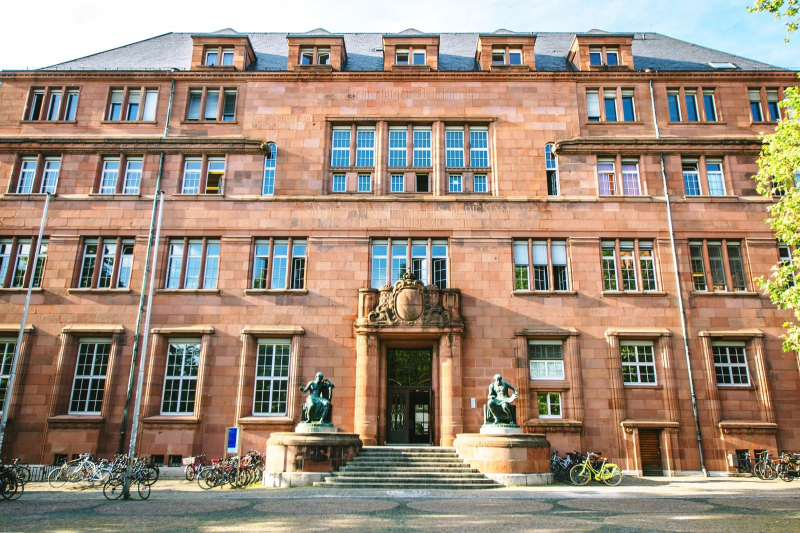
University of Freiburg (photo: https://www.linkedin.com/) 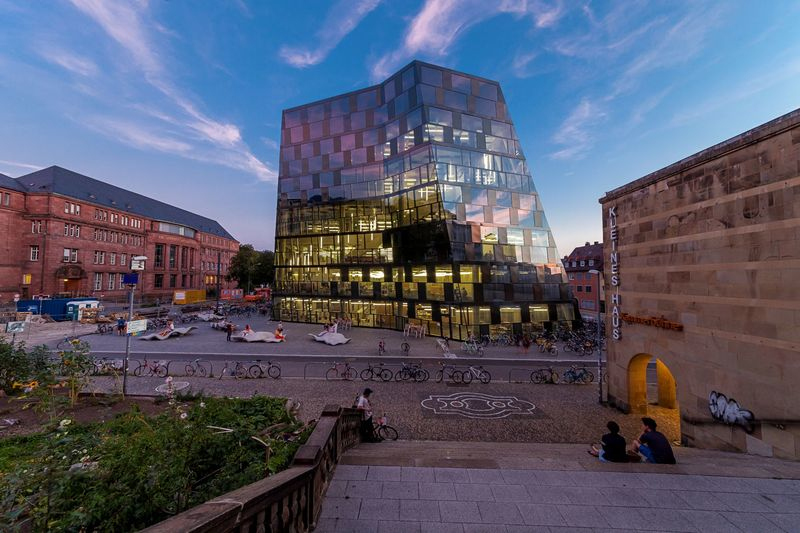
University of Freiburg (photo: https://visit.freiburg.de/) -
The University of Bonn was founded in 1818 and is formally known as The Rhenish Friedrich Wilhelm University of Bonn after Prussian King Friedrich Wilhelm. The institution, founded during the Age of Enlightenment and based on critical thinking and liberal ideas, grew fast, with many prominent professors attending from all over Germany.
By the 1930s, the Nazis had driven many Jewish scholars and dissidents to flee, and the subsequent wartime shelling of Bonn in 1944 resulted in the university's demise. The university was reconstructed after the war, students returned, and academics set about restoring the institution to its former glory.Today, the University of Bonn is regarded as one of the world's leading research institutions. It is home to around 35,000 students and 4,500 academic staff, and it has strategic collaborations with 70 universities throughout the world. Its strong international spirit is visible in its 4,000 international students, who account for around 12.5 percent of the student population, which is greater than the national average. It awards roughly 800 PhDs each year.
Mathematics, Physics, Astronomy, Economics, Biosciences, and Philosophy are among the University of Bonn's subject strengths. It boasts two Nobel Prize winners: Wolfgang Paul for Physics in 1989 and Reinhard Selten for Economics in 1994, as well as eight Leibniz Prize winners. Karl Marx, Friedrich Nietzsche, and composer Robert Schumann are among its most prominent graduates.MORE INFORMATION:
World rank: 123
Location: Bonn, Germany
Website: https://www.uni-bonn.de/en/university/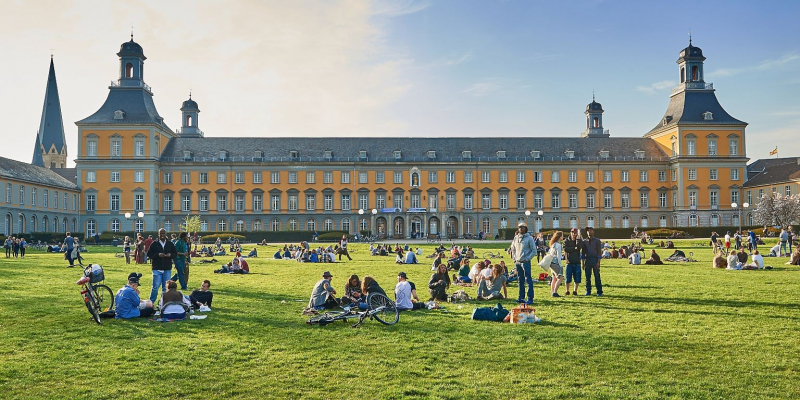
University of Bonn (photo: The University of Bonn) 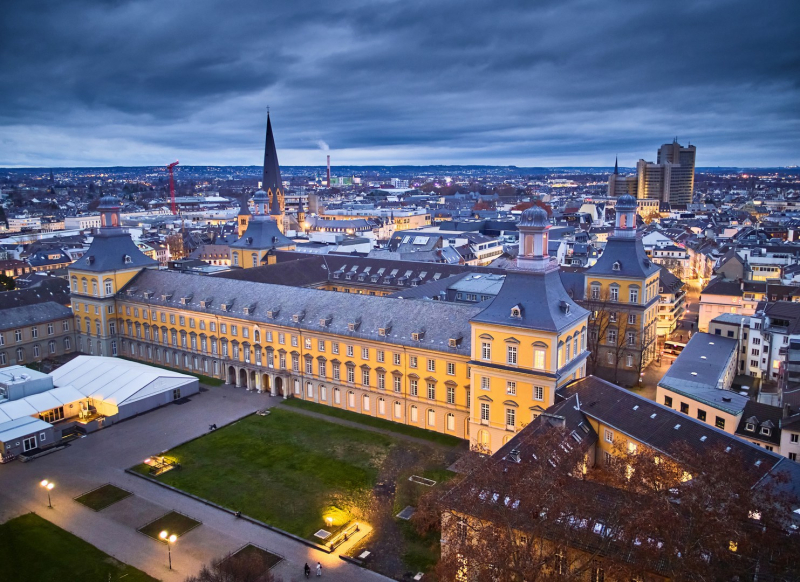
University of Bonn (photo: https://www.uni-bonn.de/) -
Goethe University in Frankfurt completes the list of ten best universities in Germany. The university is named after Johann Wolfgang von Goethe, the greatest figure in German literature and the most celebrated son of Frankfurt, who also made significant contributions to science. It was inspired by his Enlightenment principles and was founded as a "citizens' university" with private funding, but it now has a funding mechanism that is relatively rare in German higher education.
This provides it with significant governmental funding as well as the ability to develop its own endowment. (When the university celebrated its centennial in 2014, it received nearly 70 million Euros in donations.) This has resulted in nearly total autonomy in administrative and academic concerns such as staff appointment.Frankfurt, a relatively small city with a diverse range of cultural attractions, has an exceptional reputation for its quality of life and, as Europe's premier financial metropolis, an extremely cosmopolitan viewpoint and population. These are valuable assets for Goethe University, which is committed to worldwide relationships, providing opportunities for students to study abroad, and bringing in foreign scholars as part of its "international campus" effort.
The Goethe University is today divided into four campuses, each with its own particular flavor. For example, the medical school and hospital are located in Niederrad, on the banks of the Main River, close to several of Frankfurt's major museums. The new Westend Campus is even more appealing, with cutting-edge teaching and leisure facilities located in a park setting and a variety of buildings clad in travertine stone.
Goethe University is a world-class research university with a strong dedication to multidisciplinary techniques. It is especially well-known for its work in health and physics, as well as highly useful contributions to economics and business administration.MORE INFORMATION:
World rank: 133
Location: Frankfurt, Germany
Website: https://www.goethe-university-frankfurt.de/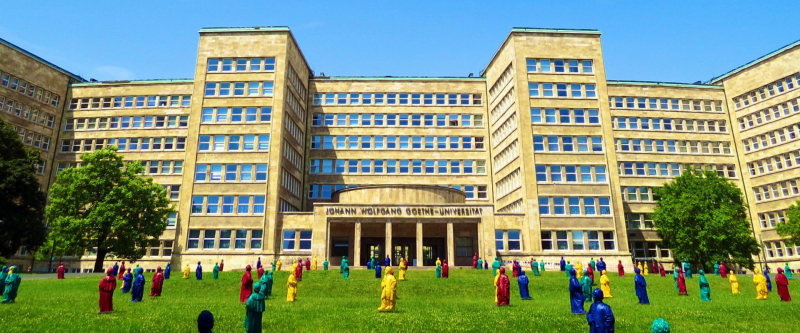
Goethe University Frankfurt (photo: https://www.study.eu/) 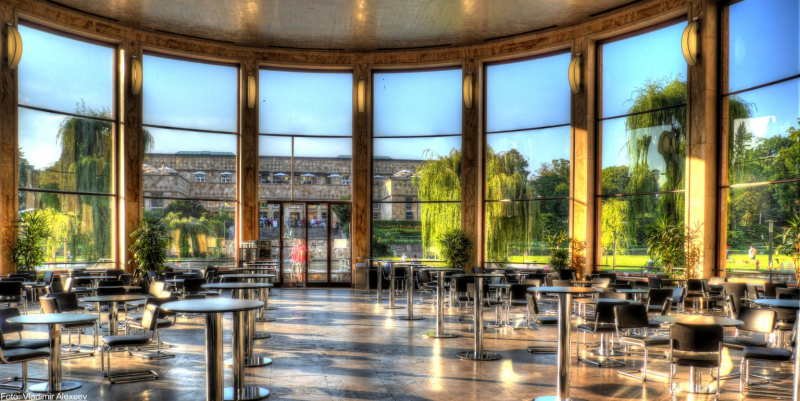
Goethe University Frankfurt (photo: Goethe University Frankfurt)















